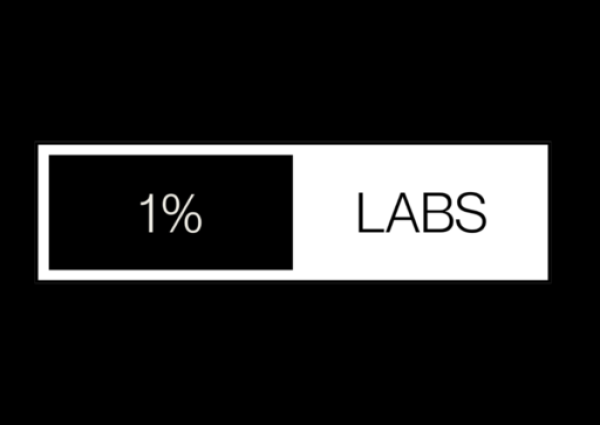Student Offer (Limited Time)
$79.95 AUD
✅ Lifetime Access
✅ All Future Updates
✅ First Access to Community
Get in now and be part of the NeuroStudyLabs 1% — the students who decided to stop winging it and start winning with strategy.
You sit down to study. You open your notes. You start strong. Then, ten minutes later, you’re scrolling your phone, staring at the ceiling, or googling something unrelated.
Sound familiar?
If you constantly feel distracted or unmotivated while studying, you’re not lazy — your brain is overwhelmed. In a world full of notifications, tabs, and mental pressure, focus has become a skill most of us were never taught.
The good news is, focus is trainable. In this article, we’ll explore the science behind why it’s so hard to focus, and how to fix it with real, proven strategies.
Focus is managed by your prefrontal cortex, the part of your brain responsible for attention, planning, and self-control. It’s also driven by dopamine, the brain’s reward chemical. When you complete a goal or experience progress, dopamine is released, making you feel good and motivating you to keep going.
But when dopamine is overstimulated by social media, quick entertainment, or constant multitasking, your brain becomes desensitised. This makes slow, effortful tasks — like studying — feel boring, frustrating, or even stressful.
So, to regain focus, you don’t just need better discipline.
You need to reset your brain’s reward system and change how you study.
Every ping, scroll, or short-form video gives your brain a mini hit of dopamine. Over time, your brain starts craving these quick rewards and finds long, deep-focus tasks harder to tolerate.
Fix it:
Do a 24-hour dopamine reset by avoiding social media and fast content
Keep your phone in another room while studying
Use minimalist music like lofi or white noise to help you settle in
If you start studying without a plan, your brain doesn’t know what to do first. That creates mental friction, and you start procrastinating.
Fix it:
Set one clear task before each study session, like “Finish flashcards for Chapter 3” or “Write the first paragraph of my essay”
Use time blocks or the Pomodoro technique to give structure (25 minutes on, 5 minutes off)
Track progress to create a sense of reward
When your brain is tired — whether from poor sleep, poor nutrition, or hours of screen time — it struggles to hold attention.
Fix it:
Study earlier in the day, when your energy is highest
Take short breaks every 25 to 50 minutes
Stay hydrated and eat brain-supporting foods like nuts, leafy greens, and berries
Prioritise 7 to 9 hours of quality sleep
Trying to study while checking emails, flipping tabs, or messaging friends destroys focus. Every switch resets your brain’s concentration — and it can take 20 minutes to get it back.
Fix it:
Study with only one tab or task open at a time
Use a notebook or offline tools instead of digital where possible
Try focus apps like Forest, Freedom, or Cold Turkey
Even small distractions — background noise, cluttered desks, or incoming notifications — can lower your ability to stay on task.
Fix it:
Clean your study space before each session
Use headphones to block noise
Set your devices to Do Not Disturb
Create a routine that trains your brain to associate a space or time with deep focus
Focus is like a muscle. The more you use it, the stronger it becomes. The key is consistency — not perfection.
Start small:
One 25-minute session per day
One clear goal
One distraction-free space
Over time, you’ll find it easier to concentrate, remember, and stay motivated.
At NeuroStudyLabs, we teach students how to build real focus using neuroscience-backed systems. Our course is designed to help you:
- Break the habit of distraction
- Build long-term focus with simple routines
- Use active recall and spaced repetition to improve memory
- Create study habits that reduce stress and improve performance

1. Why do I feel like I can’t focus no matter how hard I try?
Your brain is probably overstimulated or burnt out. Distraction is often a symptom of fatigue, lack of structure, or too much digital input — not laziness.
2. Does music help or hurt focus?
Instrumental music, like lofi or ambient sound, can help block distractions. Avoid music with lyrics, fast tempo, or high stimulation, especially for tasks that require deep thinking.
3. How long does it take to improve focus?
With consistent deep work sessions and good habits, you can start noticing improvements in just one to two weeks. The more you train your brain to focus, the easier it becomes.




✅ Lifetime Access
✅ All Future Updates
✅ First Access to Community
Get in now and be part of the NeuroStudyLabs 1% — the students who decided to stop winging it and start winning with strategy.
NeuroStudyLabs is a neuroscience-backed study skills program designed for high school and university students. It teaches you how to learn smarter, stay focused, retain more, and perform better — using proven techniques from cognitive science and psychology.
Students who want to study smarter, not harder — especially:
Year 10–12 students preparing for exams
University students juggling heavy workloads
Burnt-out students who’ve tried everything
High achievers looking to stay ahead
Whether you’re struggling to stay focused or aiming for top scores, this course gives you the tools to get there.
No — this isn’t about generic advice.
NeuroStudy Labs is a complete system based on how your brain actually works. You’ll learn how to apply techniques like:
Active recall
Spaced repetition
Deep work focus
Learning identity & mindset building
And you’ll get planning tools, templates, and weekly systems to make it stick.
You get lifetime access to:
7 detailed, video-based modules
50+ lessons with engaging transcripts & visuals
NeuroStudy Planner
Reflection prompts, mini-exercises, and toolkits
An entire brain-based study system you can follow forever
The full course is designed to be completed slowsly over 2-4 weeks, but it’s self-paced — you can move faster or slower depending on your schedule. Many students start seeing results within the first week of applying the system.
It’s grounded in neuroscience, not guesswork.
This is not about cramming more in — it’s about changing how you study, how you think, and how you feel about learning. It’s transformation, not just information.
Yes. If you complete the course and don’t see any improvement in your focus, motivation, or results, we’ll give you a full refund within 30 days — no stress, no pressure.
Perfect — NeuroStudy Labs helps high achievers unlock even more potential. You’ll learn how to study more efficiently, reduce stress, and gain a competitive edge that lasts through university and beyond.
